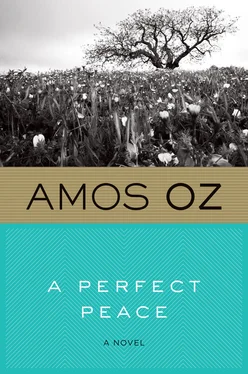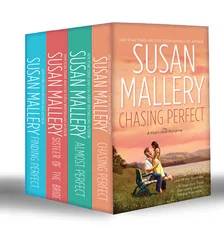The shame of words. Of lies. Wastelands of unspoken truths. Sleeping. Waking. The pallor of her fingertips. The white tips of her teeth. The sight of her naked body, so fragile, chaste, and pitiable, in a cold shower on a summer day. The taste of her silence. Of his. The permanently dead space between his and hers. Her duplicitous, hollow beauty. Her feigned tenderness that mustn't be touched even when you felt most like touching. The rub of her small hard breasts against the skin of his face, the muscles of his belly, the hair of his chest. The patient, bitter beating against her, the more and more desperate search everywhere for some opening, with kisses, with caresses, with cajolery, with silence, with cruelty, in the darkness, in the half-light, in the hot light, on sultry afternoons, in the hours before dawn, in bed, in woods, in cars, in sand dunes, like a father, like a child, like a savage, like an ape, gently, despairingly, jokingly, pleadingly, obscenely, violently, servilely — all in vain.
The breath that whooshed out of his lungs like a sob each time that he came so loathsomely far from her and from himself and from any love, always stymied in the end by the same dead frozen silence on the same dead frozen lips. Her body as stiff as a corpse. The rustle of the sheets cold and venomous and between them the soft sibilance of thrashed silk. The fruitless movement of her lips in the hair of his chest, the vain meander of her tongue down to his groin, his hands with sudden fury grasping, shaking her shoulders, shaking her back, her whole body, as if it were a watch that had stopped ticking, even cuffing her face with the back of his hand, one time even with his fist. All in vain. Always the same creeping wanting, the same fear, the same regret, the same ruses, the same shame, the same suffocating venom welling up inside him like a scream being screamed underwater. And afterwards his questions. Her silence. Her questioning. His silence.
And, always and without fail, her insane baths and ablutions, as if she were scrubbing some filth or poison from her skin, extirpating the last of his and her body odor with hot water and suds, before getting back into bed suffused with the fragrance of the childish almond soap that he hated, all pink and clean like a baby, like a God's angel in a kitschy religious tableau. And falling asleep right away while he lay there listening to another woman's laughter through the wall or the whispers of couples on the lawns, drifting through the open windows on summer nights.
Once and for all to grab the bread knife and plunge it into her soft skin, into her veins and her arteries, and down deeper yet, to open her up, to rampage through the dark lymph of her and the fat and the cartilage, to the innermost nooks and crannies, to the marrow of her bones, to carve her till she screamed. He had had enough. He couldn't go on any more in such againstness.
Thus Yonatan, so far from forgetting the words he had prepared for that evening, was suddenly repelled by them, and, indeed, by anything that could be said in words. If only he could draw what he felt, or play it on an instrument, or jot it down as a simple equation in clear mathematical terms.
"The coffee you made me," he said. "I'm sorry. I forgot to drink it and it's cold."
"There's more hot coffee on the stove. I didn't drink mine either, because I was embroidering and thinking. I'll pour us both some more."
"What were you thinking about, Rimona?" Opening his eyes, Yonatan saw the flower of blue flame beneath the white-hot stove shield and, glancing down, the quick, nervous tremors that ran down Tia's spine as she lay with outstretched paws by the heater.
"I was thinking," said Rimona, "that maybe tomorrow they'll finally fix the steam boiler in the laundry room. It's been hard for us without it."
"It really is about time," said Yonatan.
"On the other hand," said Rimona, "you can't exactly blame anyone for it. Lipa has been sick. Your father's not much better yet either."
"My father keeps telling me I need a haircut. Do you think I do?"
"You don't, but if you want one, get one."
"I haven't been sick once all winter. Except for this stupid allergy. Sometimes it makes people think I'm crying. Praise'a God who dries'a the tears of'a the poor. That's what Bolognesi says whenever my eyes tear. Look at me, Rimona."
"The winter isn't over yet, Yoni, and you keep running back and forth all day from the tractor shed to the metal shop without a hat and with torn boots."
"You're wrong. Only one of them. Bolognesi said he'd fix the sole. You know, that whole tractor shed business isn't for me."
"But you once liked it."
"So what if I did?" snapped Yonatan. "So once I did and now I don't. What is it that you're always trying to tell me without ever saying it? Or if you do start to say it, you stop right in the middle. Why don't you come out with it and stop playing games? I'm asking you to talk. I promise not to interrupt. I'll be quiet as a mouse and listen to every word. Go on."
"It's nothing," said Rimona. "Don't be angry, Yoni."
"Who's angry? I'm not angry. I'm only asking you a question and hoping to get a straight answer for once in my life. That's all."
"Then ask it," said Rimona, bewildered. "You're angry that I'm not answering, but you haven't asked me anything."
"Okay. It's this. I want you to tell me exactly what you thought three, three-and-a-half years ago on that Saturday night when you decided all of a sudden that we were getting married."
"But that's not the way it happened," said Rimona softly. "And besides, why are you asking?"
"I just am. To get an answer from you."
"But why ask now? You never did before."
"Because sometimes I think… were you going to say something?"
"No. I'm listening."
"But I want you to stop just listening your whole goddamn life! Talk. Open your mouth. Say something. You're going to tell me right now why you married me, what you wanted from me, what was going on in that head of yours."
"All right, I will," said Rimona, adding after a brief silence, "Why not?" Almost smiling, she huddled in her armchair clutching her fresh mug of coffee with all ten fingers. Her eyes seemed to trace in midair the musical forms pouring from the radio. "Yes, I'll tell you. It was like this. When the two of us decided to get married we were each other's first. You were my first and I was yours. And you said to me that we would go on being first all our lives, that we wouldn't copy anyone, and that whatever we did, in the house, in the garden, anywhere, we would do as if no one had ever done it before. That's what you said. That we would be like two children who are lost in the woods but who hold hands tight and aren't afraid. You said that I was beautiful and that you were good, and that from now on it wouldn't embarrass you any more, because when you were little you were embarrassed that everyone, your housemothers and your teachers and your friends, always said you were good. You said that you would take me hiking in the desert and teach me to love it. And you did. And you said that I would teach you to be quiet inside and to love classical music, especially Bach. And I did. We thought we'd get along well together even if we never talked all day, even if we sat together a whole evening without saying a word. And we thought, both of us, that it would be best for us, and best for your parents, if we lived together instead of in separate rooms, you with Udi and Etan R., and I with those two visiting girls. Because once we were married we could live together and not have to meet out-of-doors in all kinds of weird places. And the summer was coming to an end. Do you remember, Yoni, it was almost autumn and then it would be winter, and in winter there would be no place to meet. And so we decided to get married before the rains began. Don't cry, Yoni. Don't be sad."
Читать дальше












